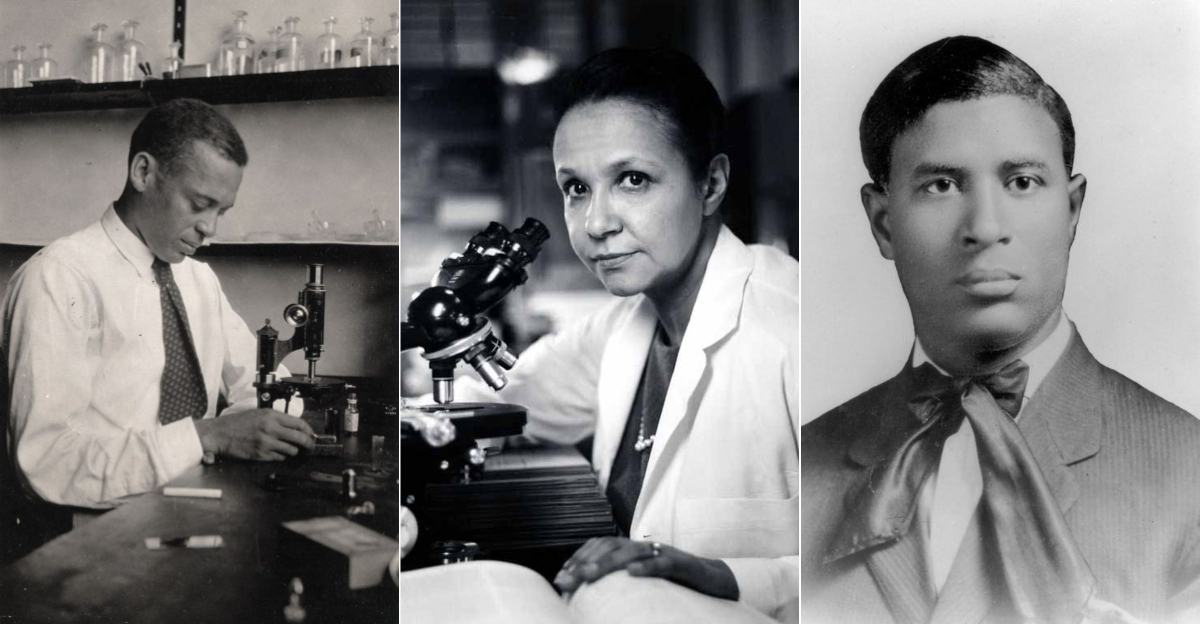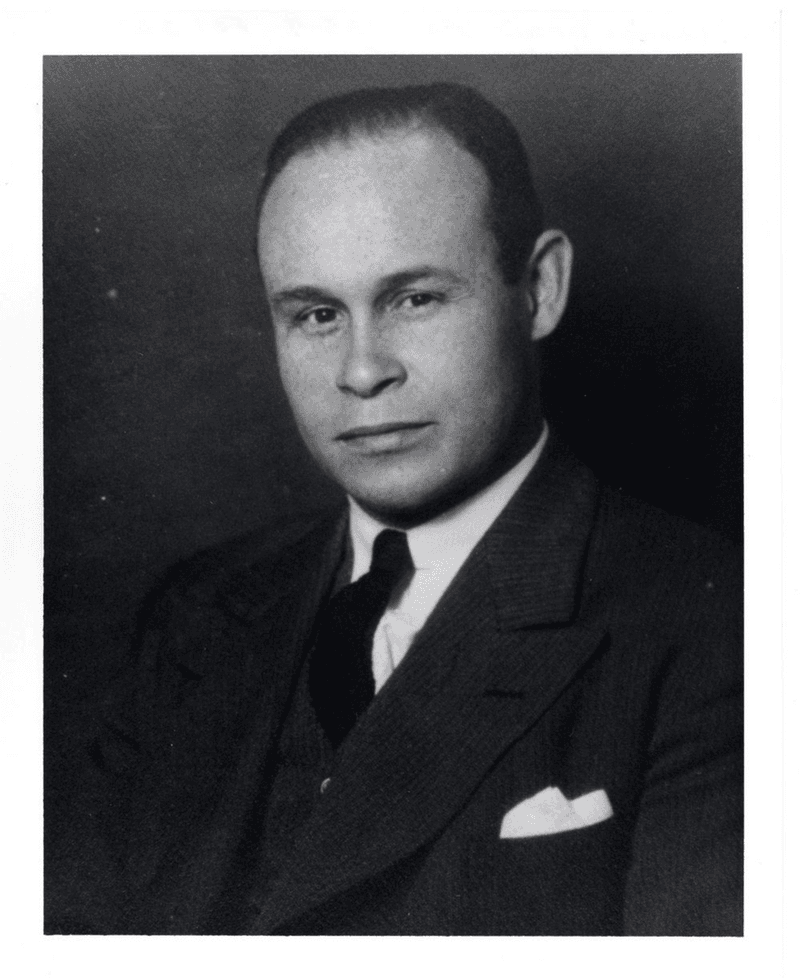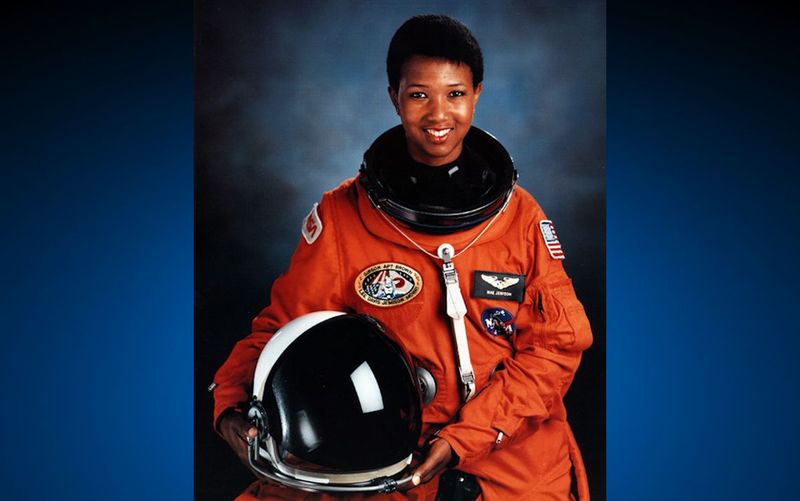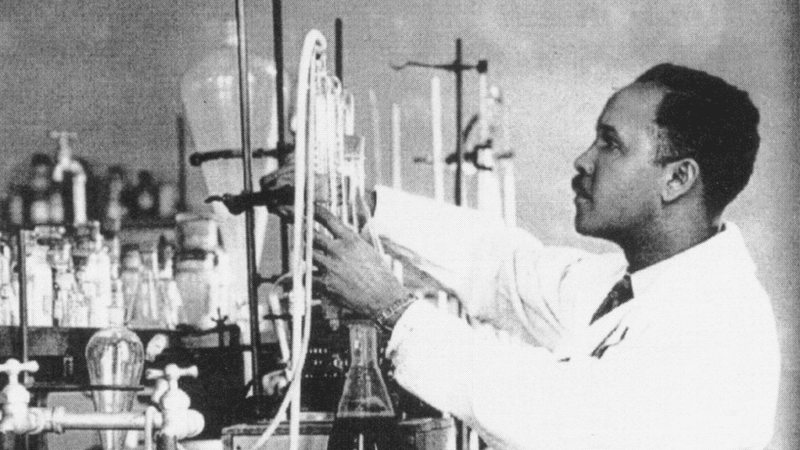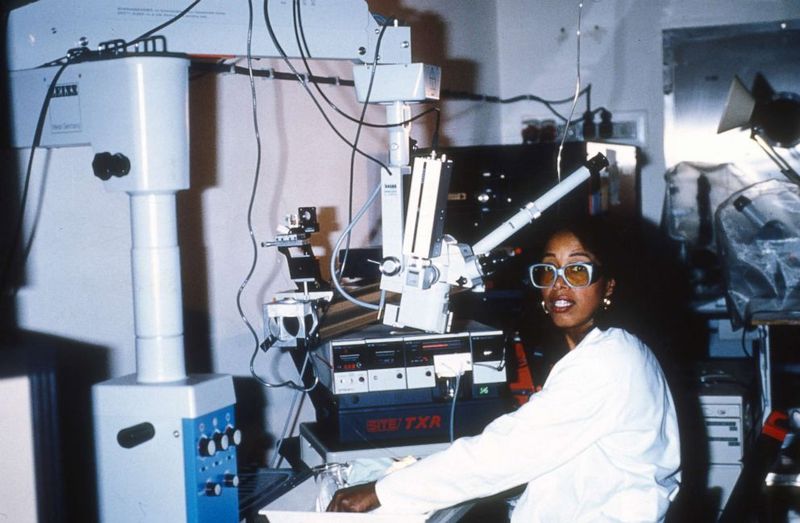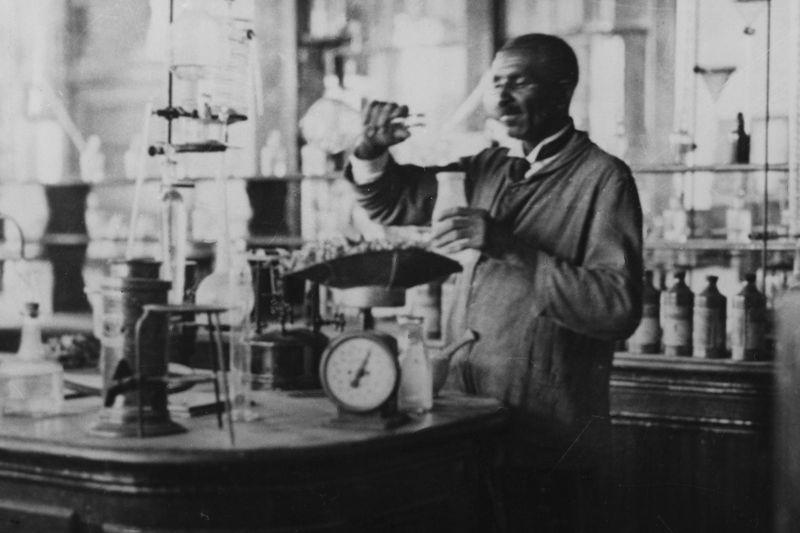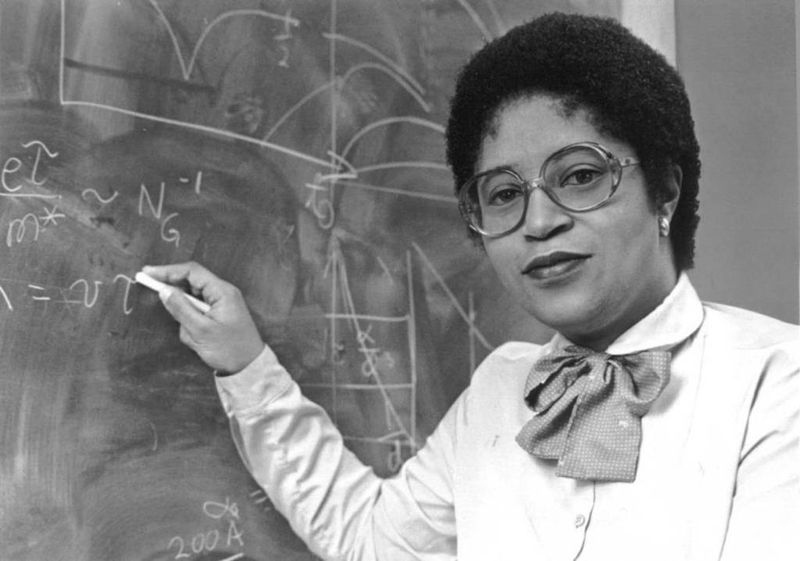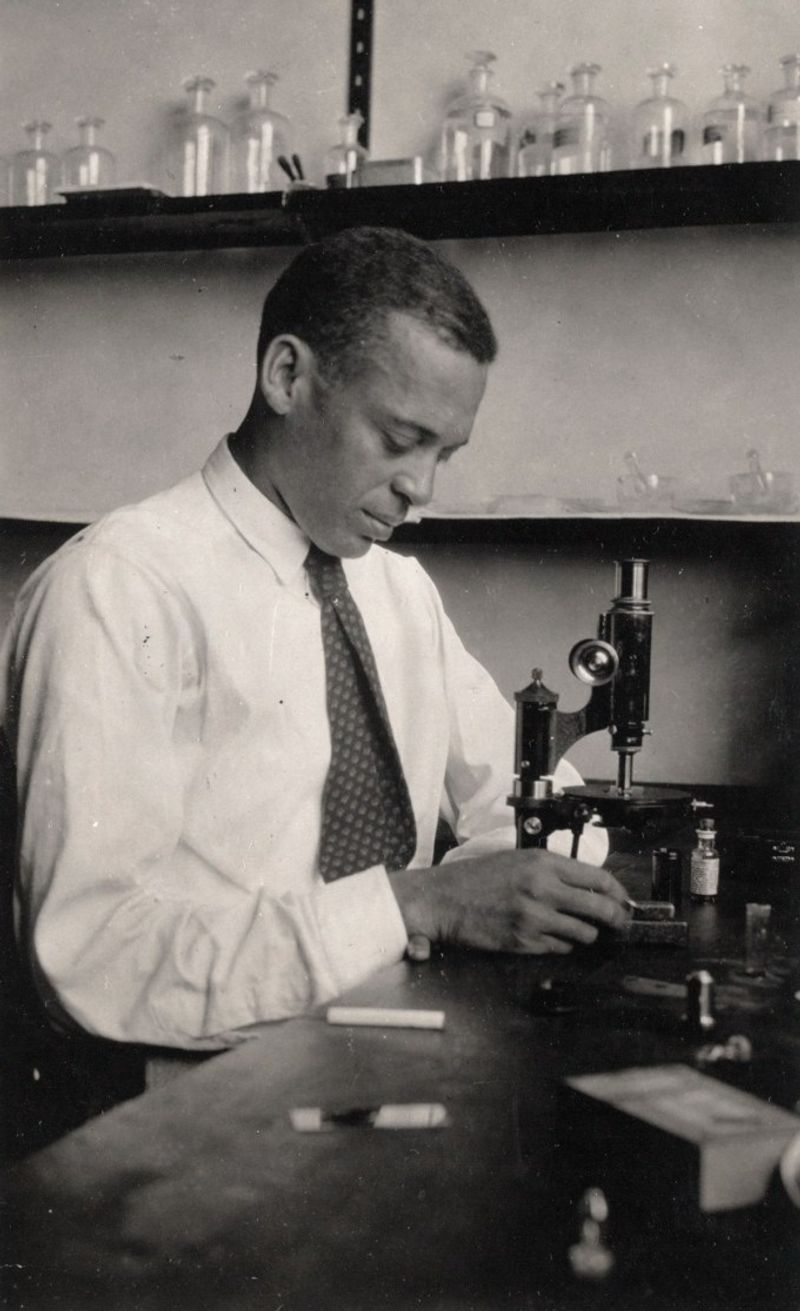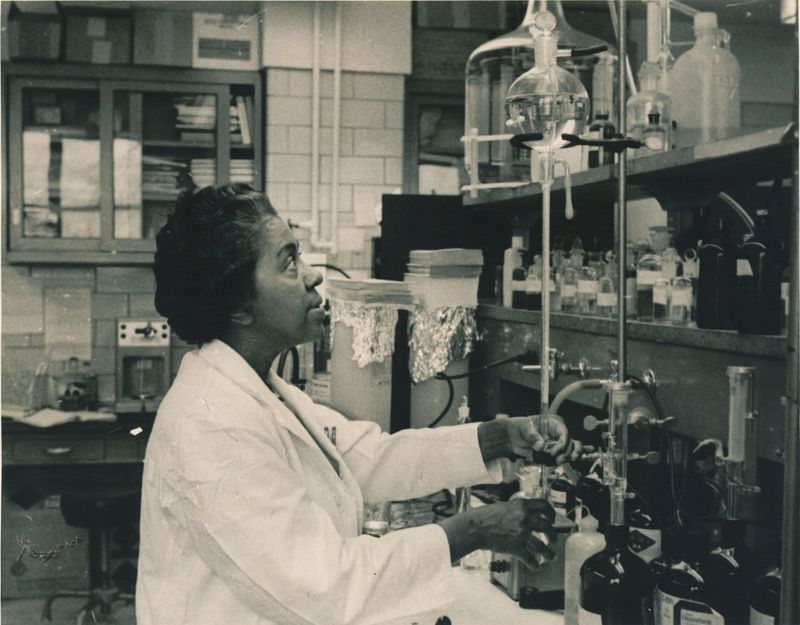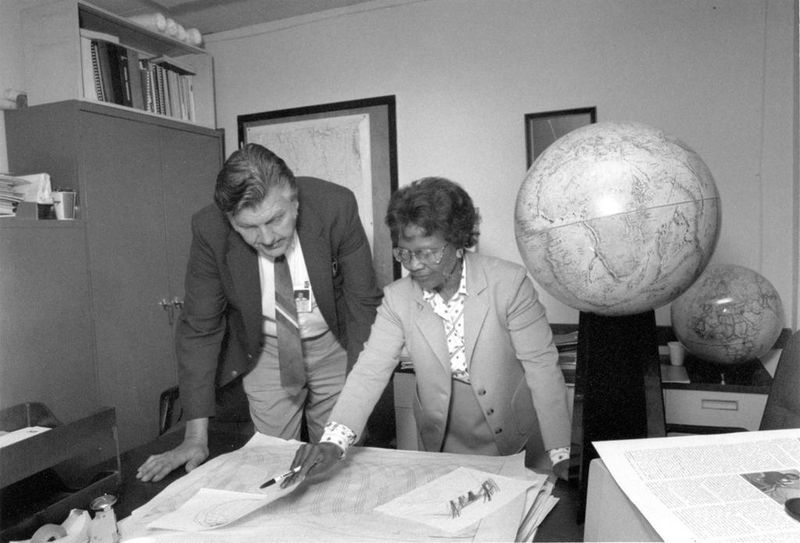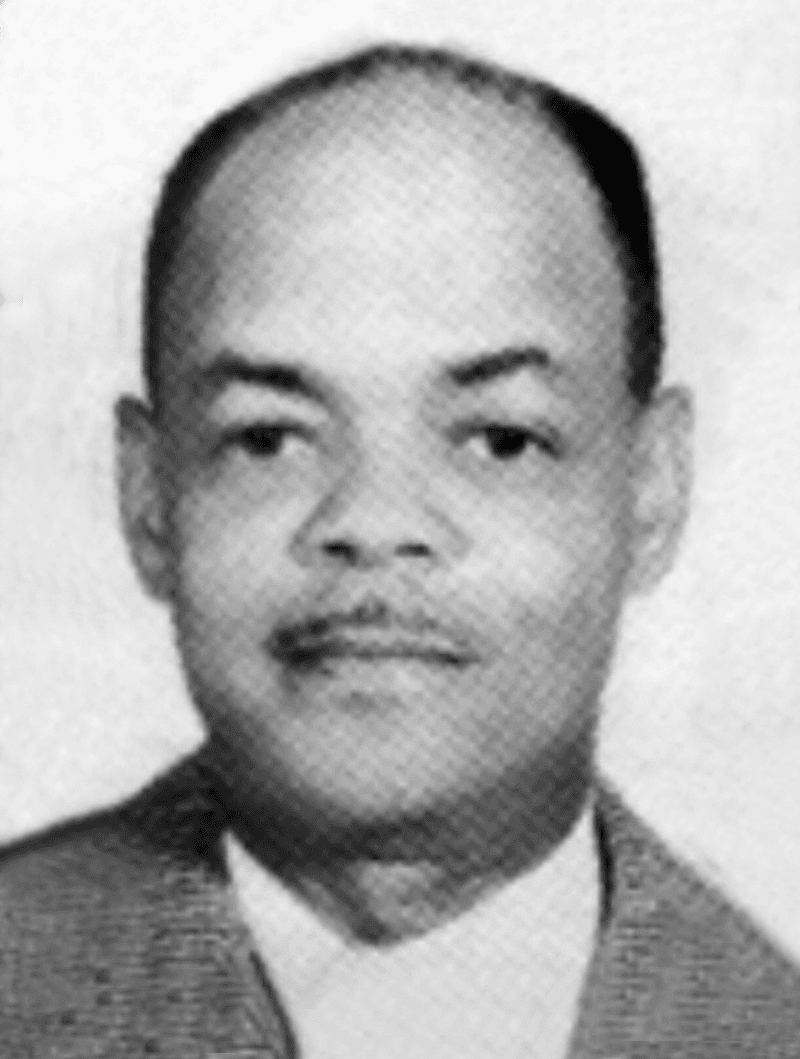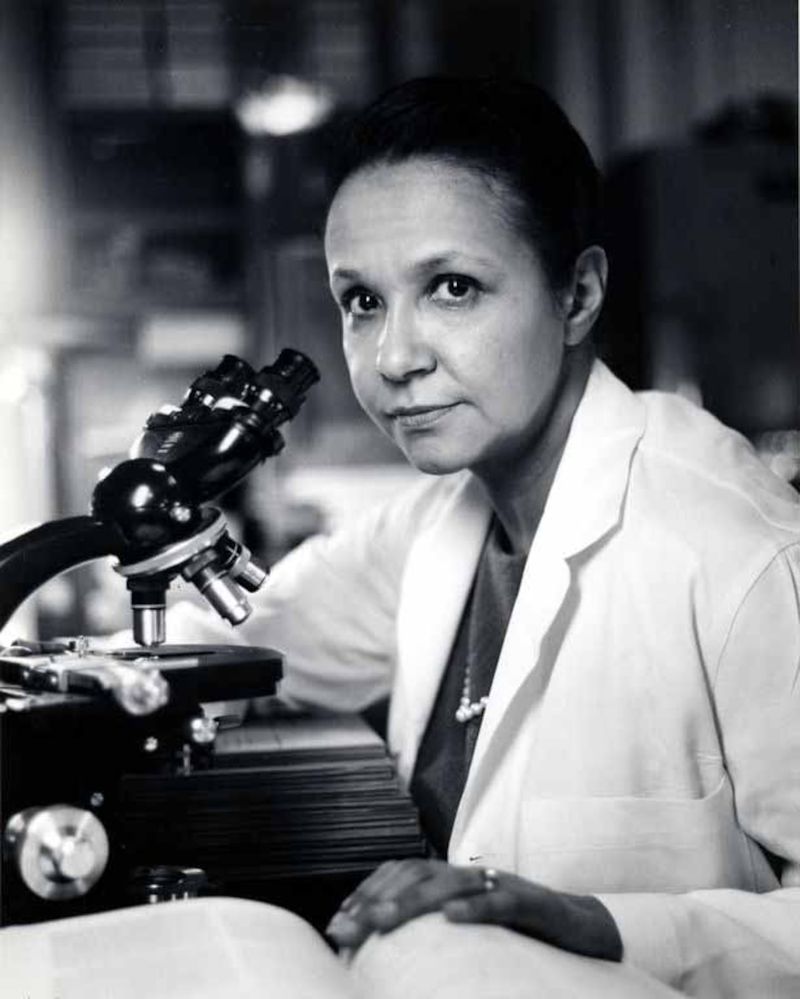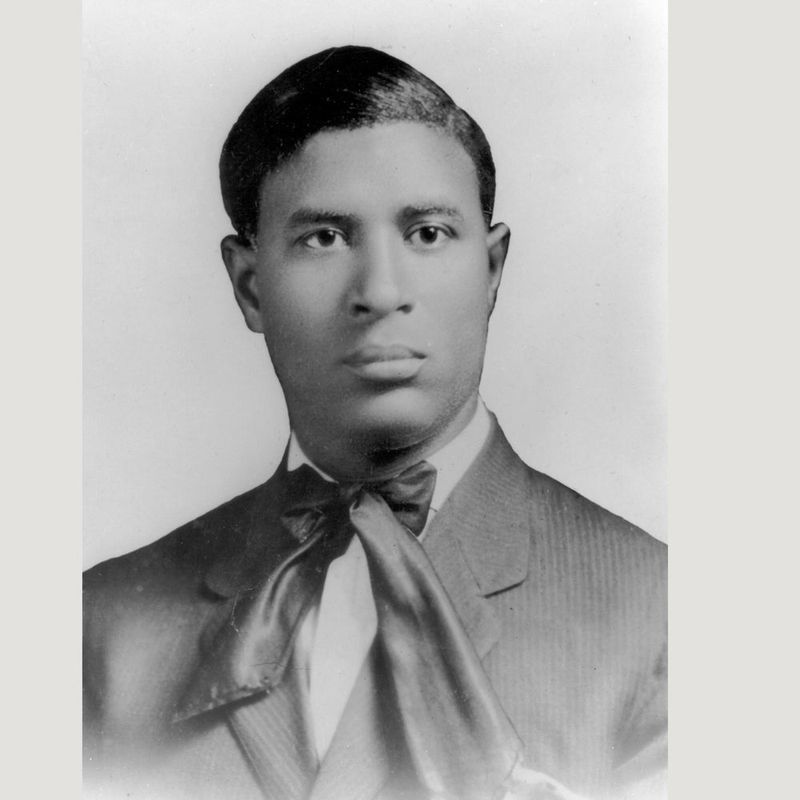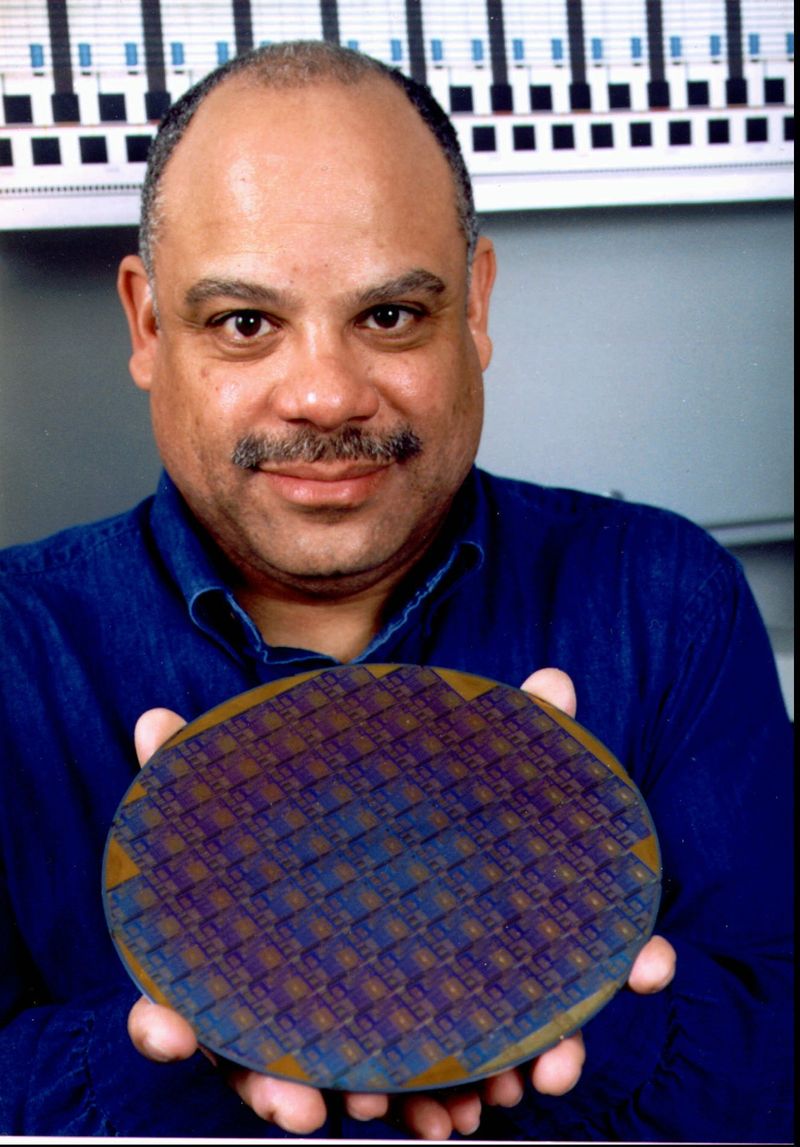Explore the groundbreaking contributions of 15 Black scientists who reshaped fields like medicine, space exploration, and technology. Their legacies challenge conventional narratives and offer fresh perspectives on innovation and resilience.
1. Dr. Charles Drew (1904–1950) – The Blood Bank Pioneer
Hailed as the father of the blood bank, Dr. Charles Drew revolutionized medical practice with his pioneering methods for blood plasma storage. During World War II, his innovations saved countless lives and laid the groundwork for modern blood donation systems. Despite facing racial prejudice, Drew became the first Black surgeon to serve as an examiner for the American Board of Surgery. A common myth falsely claims he died from being denied a blood transfusion; however, his tragic end came from a car accident, not medical neglect. Drew’s legacy thrives in hospitals worldwide, inspiring future generations.
2. Dr. Mae Jemison (b. 1956) – The Space Trailblazer
Dr. Mae Jemison’s journey to becoming the first Black woman in space is a tale of ambition and versatility. Beyond her historic 1992 space mission, she excelled as a physician, engineer, and even as a dancer, debunking the idea that the arts and sciences don’t mix. Jemison’s story is one of breaking barriers and inspiring others to pursue diverse passions. Her space mission and her subsequent efforts in science education continue to motivate countless young minds to dream beyond the stars and explore the unknown realms.
3. Percy Julian (1899–1975) – The Steroid Synthesis Genius
Percy Julian’s genius was not only in his scientific accomplishments but in his determination to overcome discrimination. As the first Black chemist in the National Academy of Sciences, he revolutionized medicine by synthesizing affordable cortisone, transforming arthritis treatment. Julian’s journey to a Ph.D. was fraught with challenges, including segregation and academic racism, yet he triumphed with resilience and brilliance. His contributions extended beyond chemistry, influencing pharmaceutical development worldwide and paving the way for future Black scientists in academia and industry.
4. Dr. Patricia Bath (1942–2019) – The Laser Eye Surgery Inventor
Dr. Patricia Bath’s groundbreaking work in ophthalmology restored sight to millions. She made history as the first Black female doctor to receive a medical patent with her invention of the Laserphaco Probe for cataract treatment. Her innovations not only advanced eye surgery but also made significant inroads towards health equality. Bath’s pioneering spirit and dedication to eradicating preventable blindness underscore her lasting impact on medicine. Her legacy encourages women and minority groups to strive for excellence in scientific fields.
5. George Washington Carver (1864–1943) – More Than Just Peanuts
George Washington Carver’s legacy extends far beyond his famous peanut inventions. A visionary in sustainable agriculture, he developed over 300 uses for peanuts and other crops, aiding struggling Black farmers. Carver’s rejection of exploitative industrial farming practices set a precedent for environmental stewardship. His work was more than agricultural innovation; it was a commitment to improving the lives of impoverished farmers. Carver’s legacy as an educator and advocate for scientific research continues to inspire agricultural practices today.
6. Dr. Shirley Jackson (b. 1946) – The Telecommunications Revolutionary
Dr. Shirley Jackson’s research laid the groundwork for innovations that changed how we communicate. As the first Black woman to earn a Ph.D. in physics from MIT, she spearheaded research that enabled technologies like caller ID, fiber optics, and touch-tone phones. Jackson’s contributions extended beyond academia; her leadership roles in various scientific organizations have amplified her influence. Her groundbreaking work not only revolutionized telecommunications but also paved the way for women of color in STEM fields.
7. Ernest Everett Just (1883–1941) – The Cell Biology Pioneer
Ernest Everett Just’s pioneering discoveries in cell biology remain foundational to our understanding of fertilization. He unraveled complex processes of egg fertilization, yet faced racial barriers in the U.S., prompting his move to Europe. There, his talents thrived, gaining respect and recognition that eluded him in America. Just’s work not only advanced biology but illustrated the challenges Black scientists encountered. His resilience in pursuing scientific truth and excellence continues to inspire biologists and researchers across the globe.
8. Dr. Marie Maynard Daly (1921–2003) – The Biochemistry Groundbreaker
Dr. Marie Maynard Daly, the first Black woman in the U.S. to earn a Ph.D. in chemistry, broke new ground in biochemistry. Her research on heart disease and hypertension pioneered understanding of diet’s impact on health. Daly’s work laid the groundwork for important dietary guidelines and preventive measures against cardiovascular diseases. Her achievements went beyond laboratory walls, as she advocated for increased minority representation in science. Daly’s legacy continues to influence biochemistry and health sciences.
9. Lonnie G. Johnson (b. 1949) – The Super Soaker Inventor (And NASA Engineer!)
Lonnie G. Johnson’s inventive spirit led to the creation of the Super Soaker, a toy that became a billion-dollar success. Yet, few knew of his significant contributions to NASA’s Galileo mission and other engineering feats. Johnson’s dual achievements in entertainment and aerospace engineering highlight his unique talent and versatility. His story encourages young inventors and engineers to pursue diverse interests and showcase that innovation knows no boundaries. Johnson’s work continues to inspire and entertain.
10. Dr. Gladys West (b. 1930) – The Hidden GPS Architect
Dr. Gladys West’s mathematical modeling was crucial in developing the GPS technology that modern society relies on daily. For decades, her contributions went unnoticed until a sorority highlighted her pioneering work. West’s story is one of perseverance and dedication to precision, showcasing the critical role of mathematicians in technological advancements. Her achievements have revolutionized navigation and geospatial sciences, serving as a testament to the power of unseen work. West’s legacy guides future innovators in technology and mathematics.
11. Dr. Alexa Canady (b. 1950) – The Neurosurgery Pioneer
Dr. Alexa Canady broke new ground as the first Black female neurosurgeon in the U.S. Her specialization in pediatric neurosurgery was life-saving for countless children, showcasing her commitment to medicine’s most vulnerable patients. Canady’s journey to this pioneering role was fraught with challenges, yet she overcame them with determination and skill. Her work not only advanced the field of neurosurgery but also paved the way for women and minorities in medical specialties. Canady’s story is one of resilience and excellence.
12. Otis Boykin (1920–1982) – The Pacemaker Innovator
Otis Boykin’s innovations in electronics have had lasting impacts, particularly his improvements to the pacemaker’s electrical resistor, making it more reliable. His work extended to inventing components for guided missiles and computers. Boykin’s ingenuity and technical prowess transformed medical and military technology. Despite facing racial barriers, his inventions received widespread acclaim and continue to influence modern electronics. Boykin’s legacy is a testament to the power of innovation and the impact of one man’s creativity on diverse fields.
13. Dr. Jane C. Wright (1919–2013) – The Chemotherapy Pioneer
Dr. Jane C. Wright’s pioneering cancer research revolutionized chemotherapy treatments that remain in use today. As one of the few Black women in 1950s oncology, her work challenged racial and gender norms, paving the way for future scientists. Wright’s innovative protocols and dedication to patient care elevated her status as a leader in cancer research. Her legacy continues to inspire researchers and healthcare professionals, underscoring the impact of her groundbreaking work on cancer treatment worldwide.
14. Garrett Morgan (1877–1963) – The Traffic Light & Gas Mask Inventor
Garrett Morgan’s inventive prowess led to the creation of life-saving devices like the three-position traffic signal and the gas mask. While his smoke hood saved lives during a tunnel disaster, initial credit went to white rescuers, overshadowing Morgan’s contributions. His inventions have had lasting impacts on public safety and industrial safety standards. Morgan’s story is one of ingenuity and perseverance, highlighting the challenges Black inventors faced in gaining recognition. His legacy endures in today’s technological and safety advancements.
15. Dr. Mark Dean (b. 1957) – The PC Revolution Engineer
Dr. Mark Dean’s contributions to the personal computer revolution include co-inventing the IBM PC and color monitor. Holding three of IBM’s original nine PC patents, his work is foundational to modern computing, yet often overlooked in tech history. Dean’s innovations extended beyond hardware, influencing software development and digital design. His story is a reminder of the diverse contributions within the tech industry and the unsung heroes who shaped the digital age. Dean’s legacy inspires aspiring technologists worldwide.
